Are you feeling overwhelmed by the complexities of garbage disposal in your community? You're not aloneâunderstanding the right guidelines can make a significant difference in maintaining a clean and healthy environment. From recycling to composting, knowing what goes where is essential to reducing waste and protecting our planet. Dive into our comprehensive article to discover practical tips and tricks that simplify garbage disposal and make a positive impact!
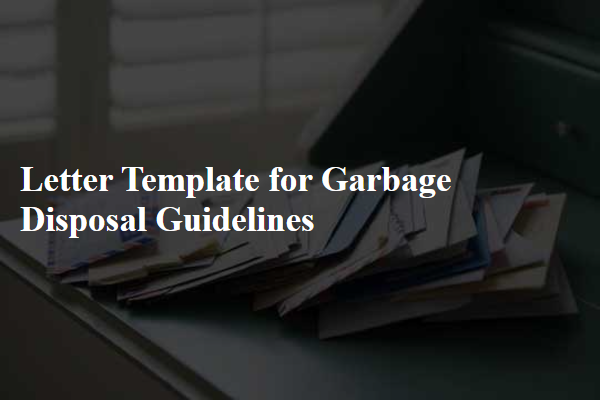
Purpose of Guidelines
The purpose of garbage disposal guidelines is to ensure the effective management of waste materials, promoting environmental sustainability and public health. These guidelines outline procedures for sorting biodegradable waste, recyclable materials, and non-recyclables, providing detailed instructions on disposal methods that adhere to local regulations. Adherence to these guidelines can significantly reduce landfill waste, conserves natural resources, and prevents hazardous waste from contaminating soil and water supplies. Additionally, by following established disposal practices, communities can contribute to cleaner urban environments, protect wildlife from ingesting harmful materials, and enhance overall community aesthetics. Local ordinances may detail specific collection schedules, designated drop-off locations, and penalties for non-compliance, underscoring the importance of responsible waste management.
Accepted Waste Types
Proper garbage disposal adheres to regulations that specify accepted waste types to promote environmental sustainability. Residential waste typically includes biodegradable materials such as fruit and vegetable scraps, which contribute to composting efforts. Recyclable items, like plastics labeled with recycling codes 1 and 2 (e.g., PETE and HDPE), along with aluminum cans and glass bottles, are essential for reducing landfill contributions. Hazardous waste, including batteries and electronic devices, requires special disposal methods to mitigate pollution. Local authorities often provide guidelines, available on municipal websites, detailing specific collection schedules and designated drop-off locations for items like bulky furniture or yard waste. Understanding these guidelines fosters community engagement and responsible waste management practices.
Disposal Schedule
The garbage disposal schedule in metropolitan areas often varies by neighborhood to accommodate efficient waste management practices. Typically, collection days occur weekly, with some areas assigning specific days based on the type of waste, such as organic, recyclable, or general garbage. For instance, in New York City, residential organic waste is collected on Mondays and Thursdays, while recyclables are picked up on Tuesdays. Each household is advised to have bins clearly labeled, preferably with color-coded lids--green for organic, blue for recyclables, and black for general waste--to ensure proper sorting and prevent contamination. Furthermore, residents should securely tie bags to avoid littering and aim to have waste curbside by 6 AM on collection days to guarantee pickup. Local sanitation departments often provide updates on disruptions or changes to the schedule due to holidays or inclement weather, reinforcing the importance of staying informed through their official websites or community bulletins.
Recycling Protocols
Proper recycling protocols enhance waste management efficiency in urban environments. Local municipalities, such as New York City, have established guidelines for residents to follow, including separating recyclables from general waste. Materials such as paper, cardboard, metal cans, and certain plastics (designated by recycling codes 1 and 2) are accepted. Contaminated items like greasy pizza boxes or soiled containers can compromise the recycling process. In addition, designated bins, often color-coded blue, are strategically placed for ease of access in residential neighborhoods, encouraging compliance. Regular educational campaigns, including flyers and community workshops, aim to increase awareness about recycling benefits, aiming to divert up to 30% of waste from landfills.
Contact Information
Garbage disposal guidelines emphasize the importance of proper waste management practices to maintain cleanliness and environmental safety. Residents should contact local waste management authorities for specific rules concerning disposal schedules, recycling protocols, and hazardous waste procedures in their municipality. Typical contact information includes phone numbers, often starting with the area code, and websites that provide valuable resources. In larger cities, such as Los Angeles or New York, dedicated offices handle inquiries and complaints regarding illegal dumping, waste collection days, and location drop-off centers for electronic waste. Printed brochures may also be available at community centers, detailing disposal options for different types of waste, including organic waste, plastics, and metals.

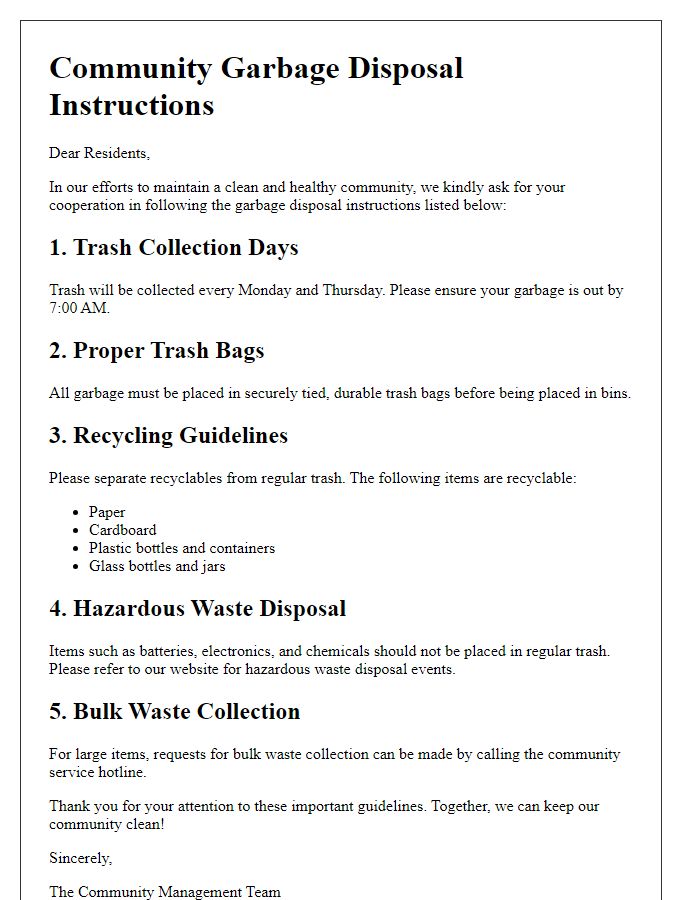
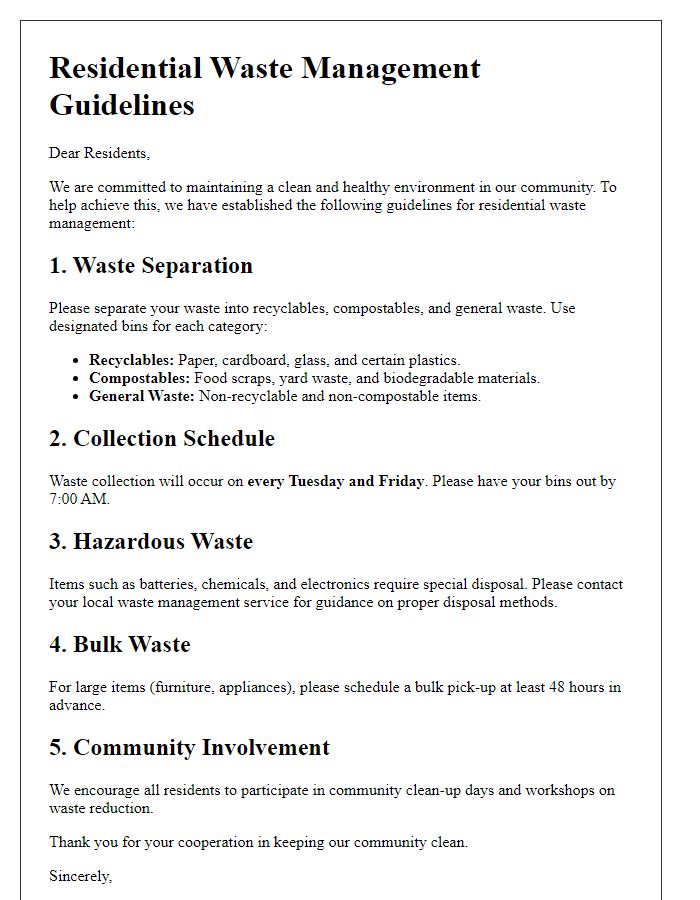
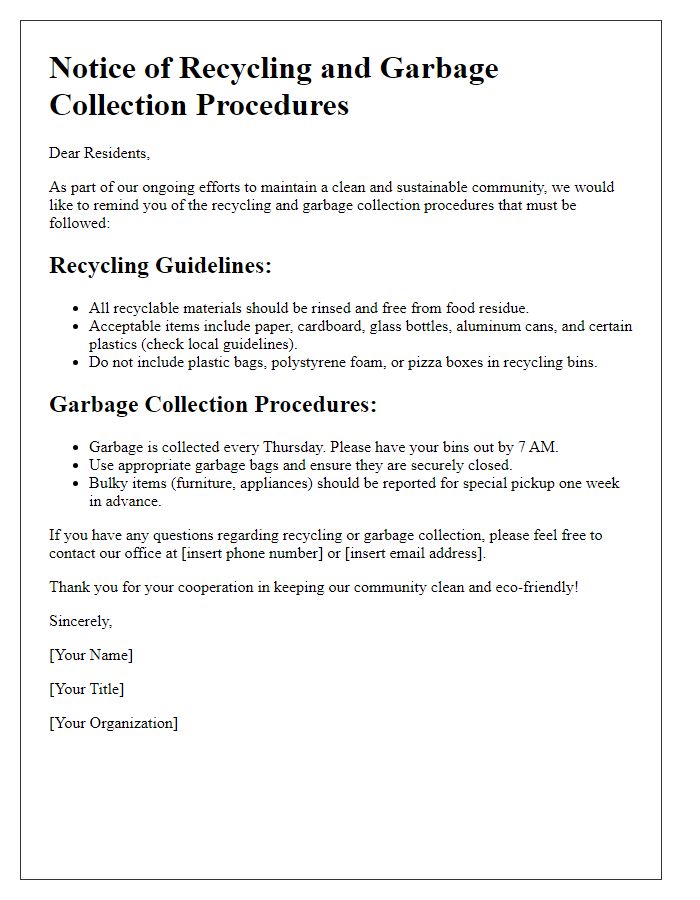
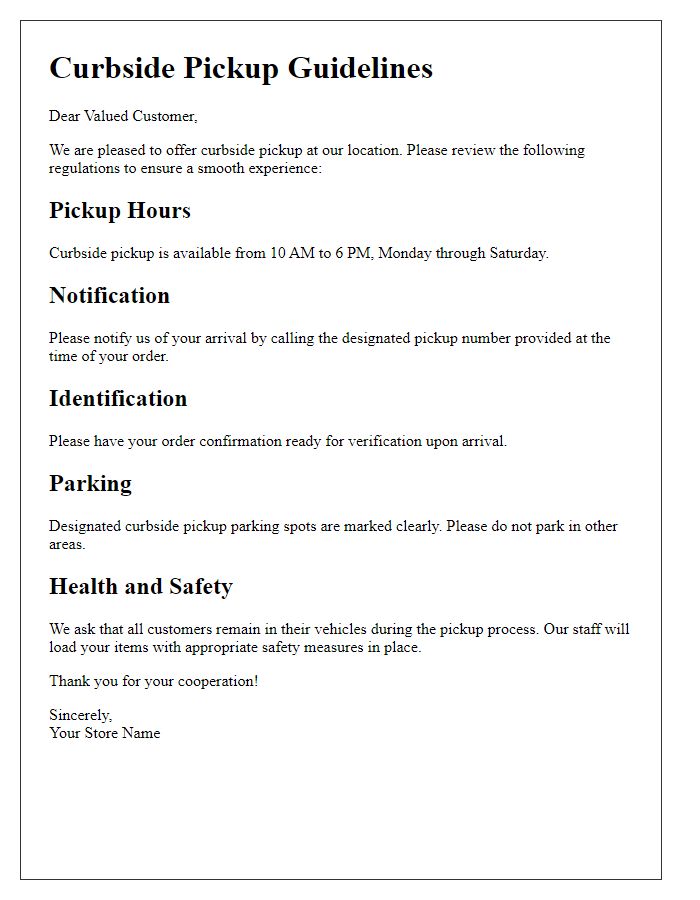
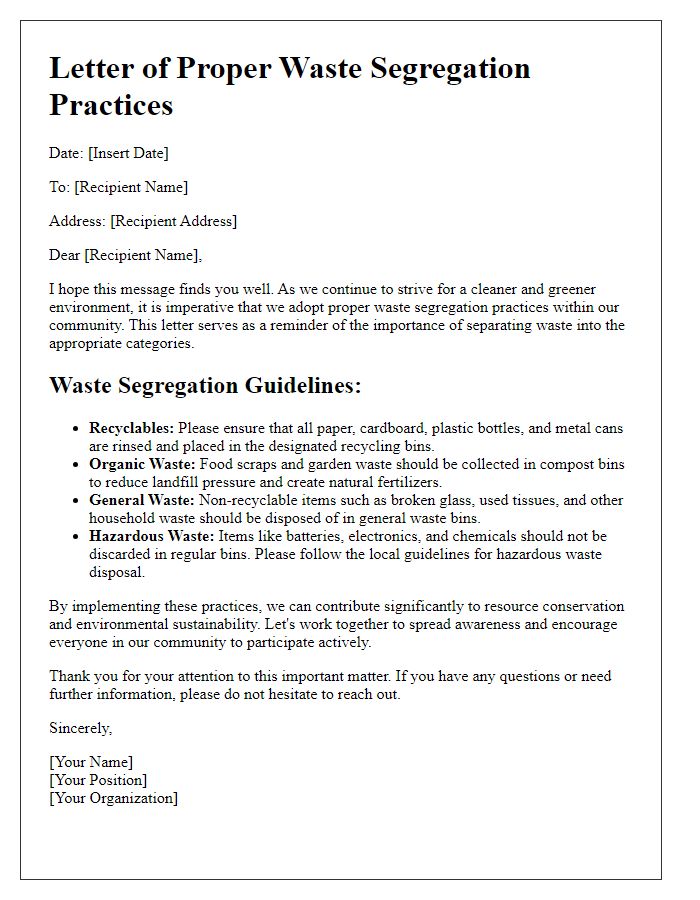
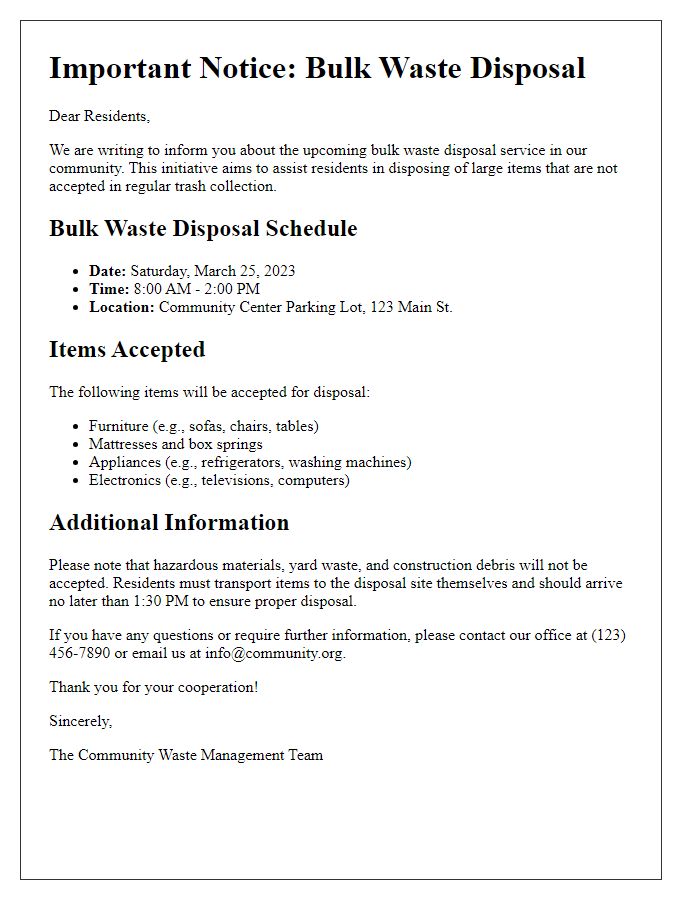
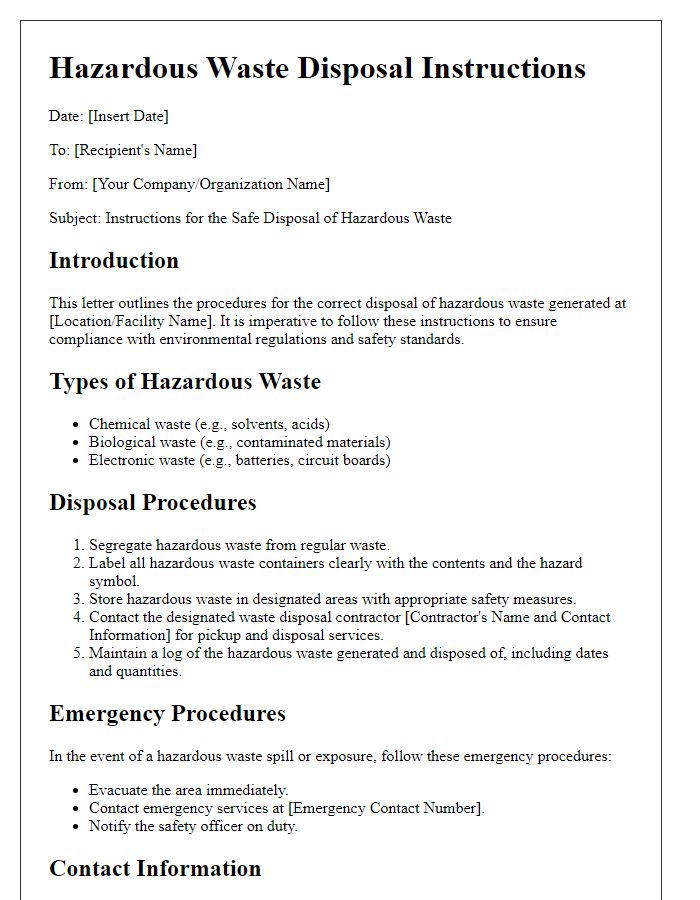
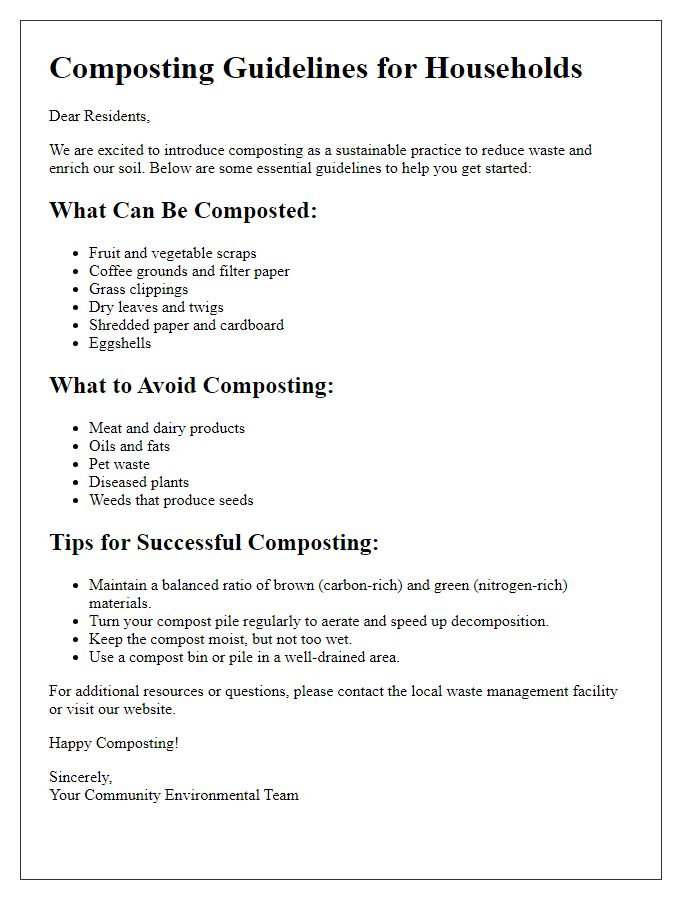
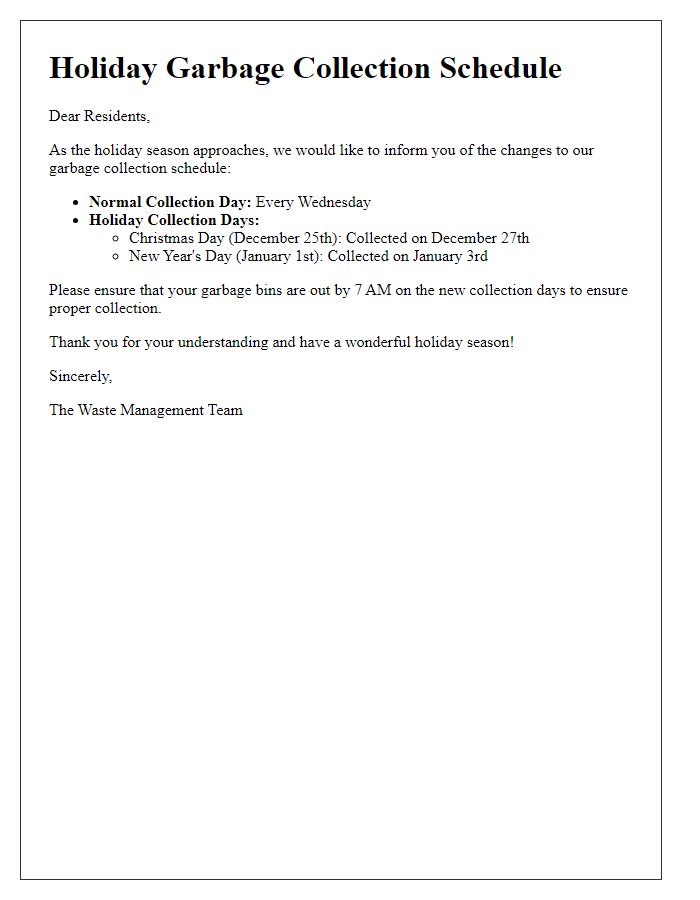
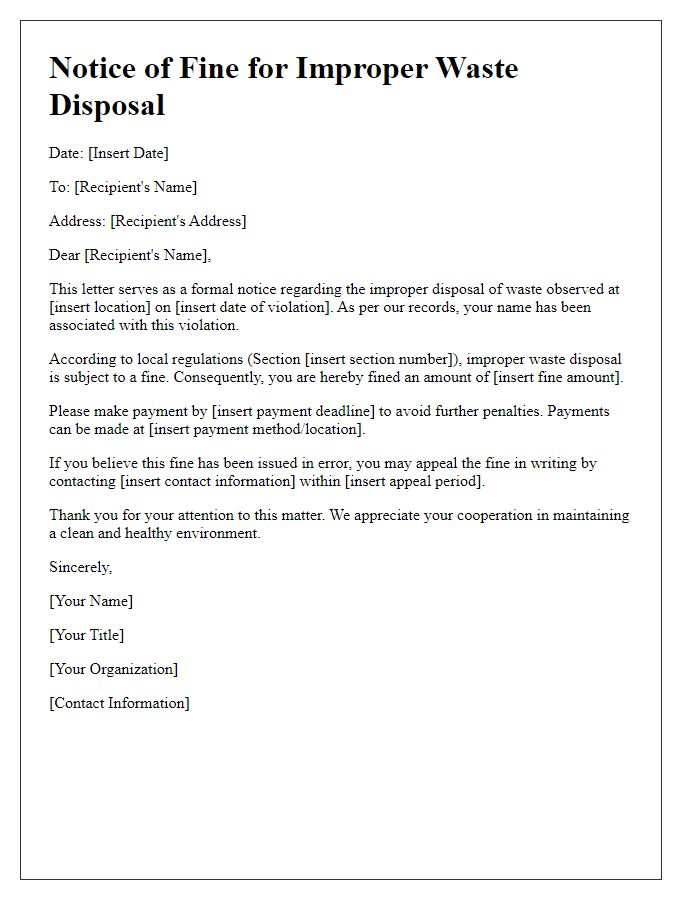


Comments